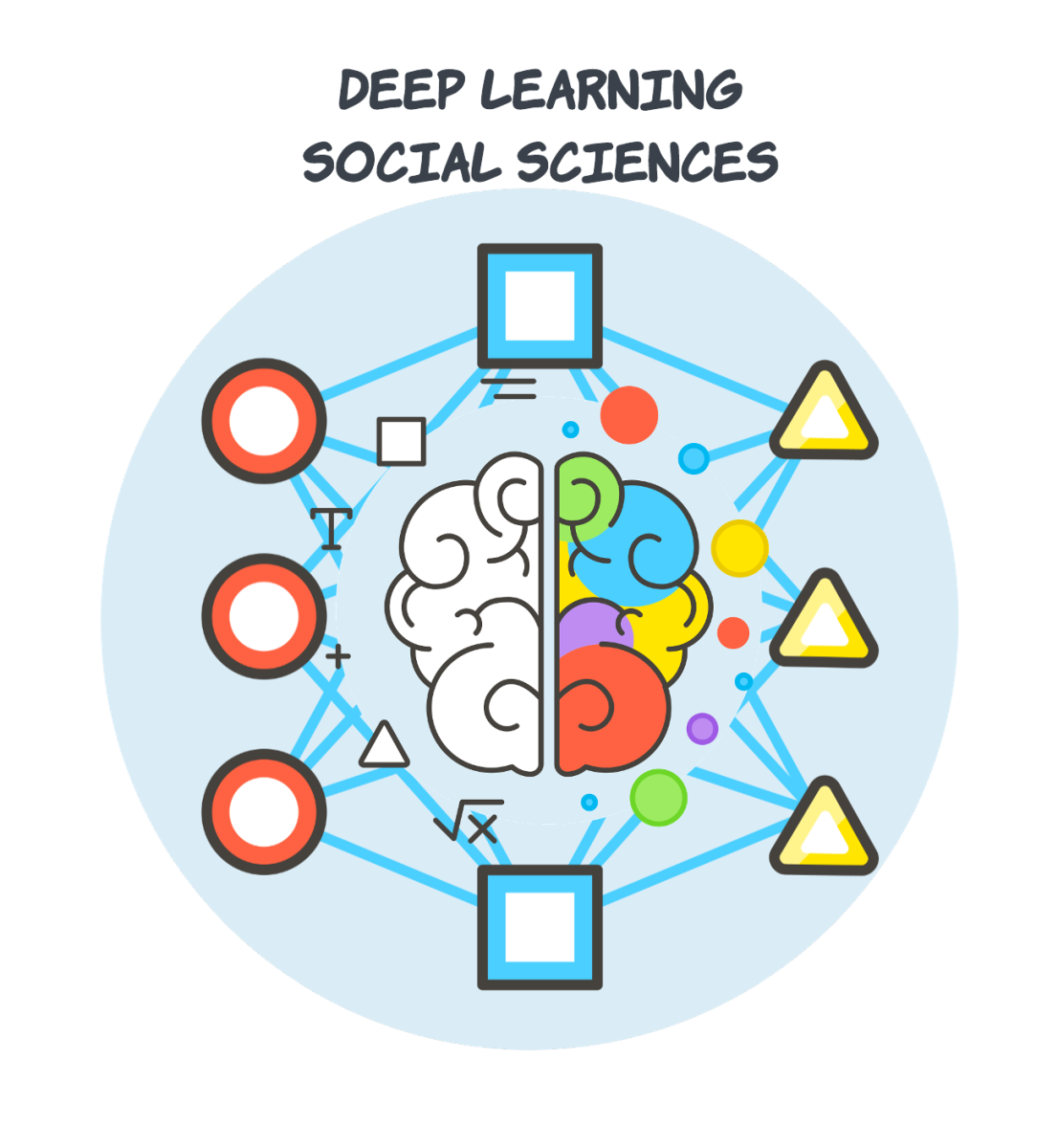
This masterclass is an introduction to deep learning applications in the social sciences. It offers a step-by-step guide to working with basic classification tasks, image recognition using convolutional neural networks (CNNs), and natural language processing (NLP) with recurrent neural networks (RNNs). The course utilizes Python, TensorFlow, and Google Colab but does not require prior coding experience. These foundational tools provide practical experience in applying essential deep learning techniques to the social sciences domain.
This masterclass is part of the ACSPRI suite of courses in social data science and does not require prior knowledge of machine learning or Python programming.
This course will be run over 3 days using the following timetable:
Day 1
- 9.30 am - 10.00 am – Introductions and setup check
- 10.00 am - 11.30 am - Session 1
- 12.30 pm - 2.00 pm - Session 2
- 3.00 pm - 5.00pm - Session 3 + exercises
Days 2 and 3
- 9.00 am - 10.30 am - Session 1
- 11.30 pm - 1.00 pm - Session 2
- 2.00 pm - 4.00pm - Session 3 exercises and consultation
Dr. Maria Prokofieva is an Associate Professor in AI/ML at Victoria University and a data lead at the Mitchell Institute, Vic. She works on projects that use AI/ML approaches and Large Language Models to research applications in business and healthcare. As a machine learning engineer with a deep passion for the responsible application of AI, Maria's work deciphers complex online behaviors to inform consumer and business strategies. She also chairs the CPA Australia Business Analytics Group and part of CPA Australia Technology Innovation Committee, driving innovation in data analysis tools. Maria’s contributions to both research and practical applications are shaping the integration of AI in business and policy on a global scale.
Data in social sciences come in various forms: numbers, text, and images. In this masterclass, you will learn how to work with these data types using neural networks, which are the foundation of deep learning. You will apply deep learning approaches to social science data, gaining hands-on experience with basic neural network structures for classification problems, CNNs for image recognition, and RNNs for text analysis and NLP.
This course is based on Python and uses TensorFlow libraries in Google Colab, which are essential tools for working with unstructured data and neural networks. The course does not assume prior coding experience or knowledge of Python, and one of the sessions will be dedicated to the basics of working with data in Python, including using the NumPy library for numerical operations, Pandas for data manipulation, and Matplotlib for data visualization.
This course is tailored for social scientists, PhD students, and researchers who aim to use machine learning techniques in their work. It will particularly benefit those interested in using large datasets for uncovering patterns within complex social behaviours. Additionally, marketing specialists and business strategists will find the course's practical focus on real-world applications invaluable to gain consumer insights from social media and other digital platforms. No prior expertise in programming is necessary, making it accessible to a wide audience keen on bringing data-driven decision-making into their respective fields.
Day 1
- Morning Session: Python Basics
- Introduction to Python Programming
- Essential Python Libraries
- Afternoon Session: Foundations of Deep Learning
- Understanding Deep Learning
- Neural Networks Basics
- Hands-On Activity
Day 2
- Morning Session: Deep Learning Architectures
- Convolutional Neural Networks (CNNs)
- Recurrent Neural Networks (RNNs) and Long Short-Term Memory Networks (LSTM)
- Afternoon Session: Preparing Data and Training Models
- Data Preprocessing
- Model Training and Evaluation
- Hands-On Activity
Day 3
- Morning Session: Introduction to Deep Learning Projects in Social Sciences
- Overview of Deep Learning Applications in Social Sciences
- Project Briefing
- Afternoon Session: Project Work
- Project Kickoff: choose your project area & work on it with instructor guidance
- Hands-On Project Work
This workshop will take place online.
BYO Laptop + Zoom. Both PC and MAC are great
The course uses Google Colab and requires a Google account (please make sure you have one or please register one before the session)
All course materials will be provided
The course requires understanding of a basic of statistical concepts, exposure to machine learning foundations is beneficial as well, such as Machine Learning for Data Science: Surpervised Learning Techniques
The course assumes no prior knowledge of Python, though some programming experience (e.g. using R) is beneficial.
TensorFlow official Getting Started Guide
https://www.tensorflow.org/tutorials/quickstart/beginner
Géron, A. (2022). Hands-on machine learning with Scikit-Learn, Keras, and TensorFlow. O'Reilly Media, Inc.
https://learning.oreilly.com/library/view/hands-on-machine-learning/9781492032632/
Q. How much mathematics do I need to start working with deep learning in TensorFlow?
A. You do not need an in-depth understanding of advanced mathematics. The course is designed to introduce you to deep learning applications in an accessible manner, focusing more on implementation and practical use rather than the statistical underpinnings. A basic understanding of algebra and some familiarity with concepts of arrays and matrices will be enough to get you started.
Q. Do I need to install anything before the session? What is Google Colab?
A. No, you do not need to install anything. We will work with Google Colab which is a free cloud service hosted by Google. It allows you to write and execute Python code through your browser. Just make sure you have a Google account! You can sign up here:
https://accounts.google.com/signin
Q. I have used R before, but not Python. Will I struggle?
A. Coming from an R background, you'll find that Python has some differences in syntax and data structures, but many of the underlying concepts are similar – you will be fine!
Q. Where can I see resources for the course?
A. All resources will be available after the course in open access, including Jupyter notebooks with practical examples covered throughout the course and additional cases.
